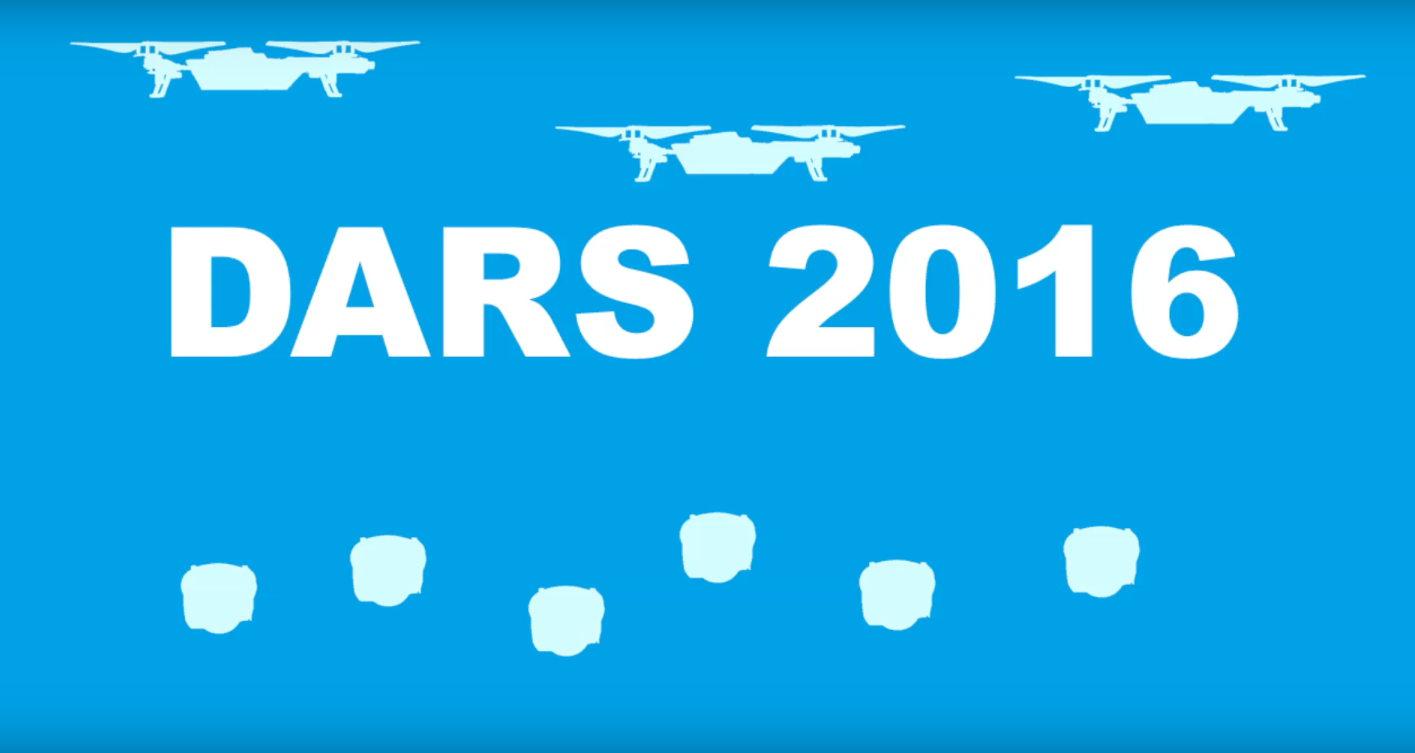
Robohub.org
#DARS16 live coverage and video trailer: From robot swarms to origami modules

The 13th International Symposium on Distributed Autonomous Robotic Systems (DARS) in London this week brings together the very best working in multi-robot systems. The general chair this year is Roderich Gross from Sheffield Robotics.
The three-day conference will include 51 presentations from 17 countries, including 4 keynotes by:
- Nikolaus Correll (University of Colorado Boulder): Material-integrated intelligence for robot autonomy
- Vijay Kumar (University of Pennsylvania): Coordination, cooperation, and collaboration in multi-robot systems
- James AR Marshall (University of Sheffield): Go to the bee and be wise: Swarm engineering inspired by house-hunting honeybees
- Katia Sycara (Carnegie Mellon University): Robust human control of multi-robot swarms
You can find the full program here.
Papers cover a range of topics including flying and underwater bots, swarms, and origami modules that self-assemble. Check the video trailer for an overview of some of the research presented.
Papers featured in the video trailer include:
- Robust Coordinated Aerial Deployments for Theatrical Applications Given Online User Interaction via Behavior Composition
Ellen Cappo, Arjav Desai, Nathan Michael - Programmable Self-Disassembly for Shape Formation in Large-Scale Robot Collectives
Melvin Gauci, Radhika Nagpal, Michael Rubenstein - Geometrical study of a quasi-spherical module for building programmable matter
Benoît Piranda, Julien Bourgeois - Vertex: A New Distributed Underwater Robotic Platform for Environmental Monitoring
Felix Schill, Alexander Bahr, Alcherio Martinoli - Distributed Camouflage for Swarm Robotics and Smart Materials
Yang Li, John Klingner, Nikolaus Correll - OuijaBots: Omnidirectional Robots for Cooperative Object Transport with Rotation Control using No Communication
Zijian Wang, Guang Yang, Xuanshuo Su, Mac Schwager - Effects of Spatiality on Value-Sensitive Decisions by Robot Swarms
Andreagiovanni Reina, Thomas Bose, Vito Trianni, James Marshall - A Comparative Study of Collision Avoidance Algorithms for Unmanned Aerial Vehicles: Performance and Robustness to Noise
Steven Roelofsen, Denis Gillet, Alcherio Martinoli
And here are the live tweets!
Tweets about #DARS16 OR #DARS2016
Sabine from Robohub will be attending – so get in touch.
tags: cx-Events

Sabine Hauert
is President of Robohub and Associate Professor at the Bristol Robotics Laboratory

Sabine Hauert
is President of Robohub and Associate Professor at the Bristol Robotics Laboratory
Related posts :
Robot Talk Episode 126 – Why are we building humanoid robots?
Robot Talk
20 Jun 2025
In this special live recording at Imperial College London, Claire chatted to Ben Russell, Maryam Banitalebi Dehkordi, and Petar Kormushev about humanoid robotics.
Gearing up for RoboCupJunior: Interview with Ana Patrícia Magalhães
AIhub and Lucy Smith
18 Jun 2025
We hear from the organiser of RoboCupJunior 2025 and find out how the preparations are going for the event.
Robot Talk Episode 125 – Chatting with robots, with Gabriel Skantze
Robot Talk
13 Jun 2025
In the latest episode of the Robot Talk podcast, Claire chatted to Gabriel Skantze from KTH Royal Institute of Technology about having natural face-to-face conversations with robots.
Preparing for kick-off at RoboCup2025: an interview with General Chair Marco Simões
AIhub and Lucy Smith
12 Jun 2025
We caught up with Marco to find out what exciting events are in store at this year's RoboCup.
Interview with Amar Halilovic: Explainable AI for robotics
AIhub
10 Jun 2025
Find out about Amar's research investigating the generation of explanations for robot actions.
Robot Talk Episode 124 – Robots in the performing arts, with Amy LaViers
Robot Talk
06 Jun 2025
In the latest episode of the Robot Talk podcast, Claire chatted to Amy LaViers from the Robotics, Automation, and Dance Lab about the creative relationship between humans and machines.
Robot Talk Episode 123 – Standardising robot programming, with Nick Thompson
Robot Talk
30 May 2025
In the latest episode of the Robot Talk podcast, Claire chatted to Nick Thompson from BOW about software that makes robots easier to program.
Congratulations to the #AAMAS2025 best paper, best demo, and distinguished dissertation award winners
AIhub
29 May 2025
Find out who won the awards presented at the International Conference on Autonomous Agents and Multiagent Systems last week.


